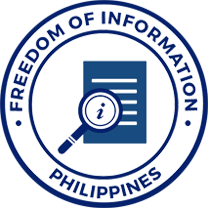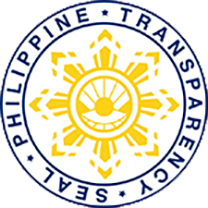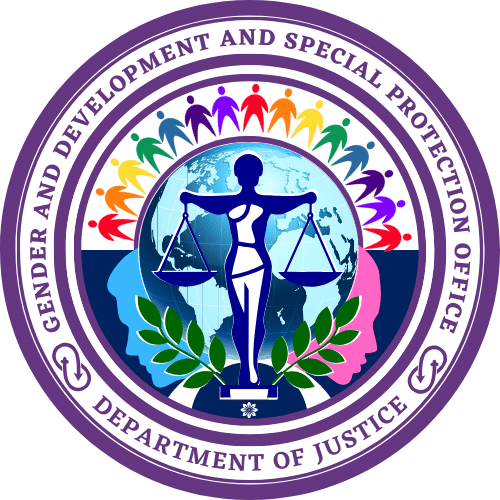The Department of Justice (DOJ), through the 23 October 2013 letter of Secretary LEILA M. DE LIMA to Department of Foreign Affairs (DFA) Secretary ALBERT F. DEL ROSARIO, requested "the expeditious cancellation of the passports" of persons who were the subject of the complaints for Plunder, Malversation, Direct Bribery and other Graft and Corrupt Practices filed by the National Bureau of Investigation (NBI) and Atty. LEVITO D. BALIDGOD before the Office of the Ombudsman last 16 September 2013, in connection with the alleged misuse of the Priority Development Assistance Fund (PDAF) by certain Members and employees of Congress, officers and employees of implementing agencies, and private person acting as officers of spurious Non-Governmental Organizations.
In her letter, Secretary De Lima raised various factual and legal bases that demonstrate the urgent and imperative need for the DFA to cancel the passports of the subject persons, as a decisive and positive means of preventing them from attempting to flee the country.
Secretary De Lima characterized such evasive acts as "being the only real viable option against the certainty of imprisonment once warrants of arrest start being issued," especially in light of the clear and convincing evidence that resulted from the NBI's investigations. Notably, plunder is a non-bailable offense; hence, Secretary De Lima reasoned, "the possibility that several of the subject persons will be in detention throughout the trial is high" thus creating "a strong probability that they will attempt to leave the country in order to evade arrest, detention and prosecution altogether."
Further buttressing this strong probability is the fact that some of these subject persons, such as Atty. JESSICA LUCILA "GIGI" REYES, RUBY CHAN TUASON, RODOLFO GALIDO PLAZA and ANTON ADINO ORTIZ, JR., left the country after the allegations against them were made public.
Secretary De Lima based the request of the DOJ on the Constitution and the Republic Act No. 8239, otherwise known as the "Philippine Passport Act of 1996".
Section 6, Article III of the Constitution expressly permits the limitation of the right to travel "in the interest of national security, public safety or public health, as may be provided by law."
One such law, the Philippine Passport Act of 1996, in turn, provides in the second paragraph of Section 4 thereof that "in the interest of national security… the Secretary [of Foreign Affairs] or any of the authorized consular officers may, after due hearing and in their proper discretion, refuse to issue a passport, or restrict its use or withdraw or cancel a passport....
The direct relation between national security and corruption is far from a novel idea, both in the domestic and international legal context, as Secretary De Lima explained in her letter.
First, such direct relation has been acknowledged in the 2011-2016 National Security of the Philippines, which states that "Graft and corruption is [a] national security concern because it saps public resources, undermines the morale of the civil service and affects the delivery of basic services. It has also become a disincentive to foreign investors from establishing business ventures in the country. 'Worse, it breeds socio-political instability as scandals degenerate into crisis situations that undermine the credibility and effectiveness of government."
Second, the United National Convention Against Corruption (UNCAC) - which provides for the obligation of States to maximize the effectiveness of law enforcement measures relating to corruption, and which the Philippines has signed and ratified and is, thus, in the same class as any other domestic statute - states in its preambular clauses various statements expressing recognition for the insidious effects of corruption on national security.
Third, Secretary De Lima also cited the resolutions of international organizations, such as the United Nationals General Assembly and the Organization for Security and Cooperation in Europe, to highlight the manifest and general, perhaps even universal, acceptance by the international community of the status of corruption as a danger to "the stability and security of societies" and as "undermin[ing] the values of democracy and morality," and "jeopardiz[ing] social, economic and political development." As summarized by the then Information Tribunal of the United Kingdom, "not only military defence, but the protection of democracy and the legal and constitutional systems of the state, are part of national security."
Fourth, she provided, concrete insights as to how "the massive scale of the plunder and diversion of PDAF funds," allegedly committed by the subject persons in these cases, endangers the nation.
Aside from the fact that such diverted funds could have otherwise been put to good use in improving the country's external and internal defense infrastructure, she also explained how "[m]oney stolen from the rural poor exponentially drives the incentive for disenfranchisement, if not outright hostility against the government and the State" and "expose[s] Philippine society to all kinds of civil and political unrest." She notes that the high incidence of poverty, due to the diversion of funds that were intended "for purposes of economic recovery in rural areas," is "exploited by insurgent forces to recruit adherents and foment rebellion and other forms of violent resistance, if not uprisings, against the government;"
Secretary De Lima even emphasized the serious and heinous threat, which "politicians and their cohorts who pluck the food away from a hungry child's mouth" pose to national security, by comparing them to "terrorists who sow physical insecurity among the populate, when they cause economic insecurity among the people by stealing livelihood resources and money intended for calamity relief."
Thus, the Secretary of Justice emphasized that "it is necessary to ensure that those responsible for aggravating the country's economic insecurity through unmitigated plundering of its wealth do not travel abroad or leave Philippine jurisdiction, while their cases are undergoing, or about to undergo, preliminary investigation and trial."
"There are those who seem to be laboring under the impression that they can flout our criminal justice system with impunity by exploiting perceived gaps in the system. It is high time to correct this wrong impression because our laws, and in fact our Constitution, has not left the State powerless against those who would thwart our efforts to end corruption, especially of the nature and magnitude involved in these cases, by simply fleeing Philippine jurisdiction before they can even be brought to trial, and despite the clear and convincing evidence gathered by our law enforcement and investigative agents," Secretary De Lima said. The cancellation of their passports is well within the ambit of the constitutionally recognized limitation to the right to travel, and the provisions of the Philippine Passport Act that implements such restriction.
"In any case, the law grants them the right to be informed and heard before the DFA could decide on our request. We shall defer to the DFA to exercise its sound discretion in this matter."







